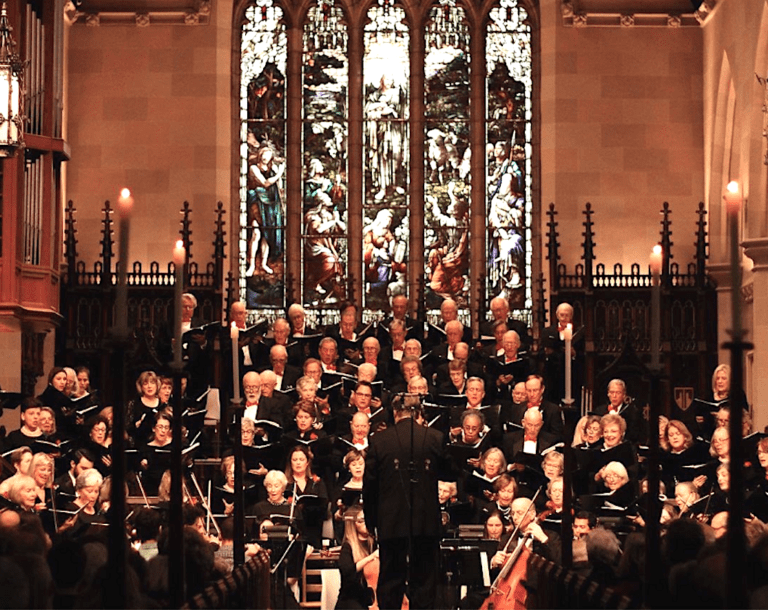
By Drew Williams
My strong suspicion is that most of us (certainly me included) have a latent disposition to understand our heavenly Father as the “Master,” the task master, the legalist, the slave driver.
The reformer Martin Luther was very honest about this. He wrote, “I have difficulty praying the Lord’s Prayer because whenever I say ‘Our Father,’ I think of my own father who was hard, unyielding and relentless. I cannot help but think of God in that way.”
In stark contrast, Jesus very deliberately painted for us a very different picture of the Father. In His Parable of the Prodigal Son, we are presented with a portrait of a heavenly Father whose love is shocking in its gracious intensity. In stark contrast to Luther’s inclination to think “harsh, unyielding and unrelenting,” the Father’s love described by Jesus is wildly excessive, extravagant and, some would say, even prodigal.
Whatever our earthly experience, our heavenly Father is the Father who never leaves us. He is a constant Father to us. He is always present and He is always Father. In Jesus’ Parable of the Prodigal Son (recounted in Luke 15:11-32), this father is always the father to his two sons. He is willing to forgive brokenness and arrogance and entitlement but he refuses to disown either of them and he will not accept, at any point in the story, anything less than a relationship of father and son. To the older brother, the father clearly stated, “You are always with me…” (verse 31). And as the constant father, he would not accept being recast as “Master” and, by implication, recast his sons as servants. Not when the younger son returned home, seeking to repay his debt as a servant, or when the older son demanded his “rights” as a servant and stated expressly, “I have been slaving for you all these years.” (verse 29).
Many of us make the same mistake as these sons did in how we may view our heavenly Father. Let me describe for you three aspects of our heavenly Father’s very different kind of love that are modeled for us by the father in this parable.
1. The Father who loves you recklessly: This is a love that is so selfless that it is willing to risk rejection. There was complete freedom for the younger son to leave in the first place and take his inheritance (that he then squandered in another country). The father granted the younger son freedom even to turn away from him. William Temple said that God’s love for us is so immense that within it He has granted us freedom, even to reject His love.
2. The Father who loves you excessively: The Father’s love is also wildly excessive, extravagant — some would say, profligate. There is the fattened calf, for example. Any meat was a rare delicacy in the village but the fattened calf that was killed for this impromptu “welcome home” banquet was exceptional prime beef. The word fattened is from the word grain (sitos) so the fattened calf was a grain-fed animal. This is super organic; this meat cuts like butter and melts in your mouth. Then there was the ring that the father placed on the younger son’s finger. The ring was most likely the signet ring of the house. With this ring came authority. Important contracts were sealed with a family signet ring. (Was this really the best gift to the give the son who has just blown a third of the family estate?) And then around the younger son’s shoulders was placed the robe. Not just any robe, but the father’s finest robe. This was radically excessive. The father had the power and indeed the “moral” prerogative to punish both brothers. In all the circumstances, the words, “I forgive you” would be extraordinarily gracious.
Why such extravagance in demonstrating his love and in such a material way? Our relationship with our heavenly Father is not only an objective truth, it is also substantive and experiential. What I mean is, you can touch it, feel it, taste it. The Bible insists on using sensory language about the magnitude of God’s love. The psalmist wrote, “Taste and see that the LORD is good.” (Psalm 34:8). The point is that we are invited not just to make some sort of mental assent to the notion that God loves us but to really believe it — to touch it, see it, taste it.
I am reminded of a time when we were living in the U.K. Our two eldest daughters were a lot younger we had some friends come and visit. They have children about the same age and they were keen to take all the kids to Hamleys, which is a very famous toy store on Oxford Street in London. I guess it is the equivalent to F.A.O. Schwartz on Fifth Avenue. My wife and I were a little reluctant because money was scarce at that time and the idea of taking your kids around a toy shop when you knew you could not afford to buy them anything seemed a bit cruel. But our friends were insistent and we primed our girls that we were just looking for ideas for Christmas presents (it was February… but they were very young).
We had arrived outside the store (our young daughters really excited, us feeling really guilty) when a man and his wife came alongside our friends. They clearly knew each other, as evidenced by all of the embracing and excitement. It transpired that this couple were the winners of a competition at Hamleys earlier in the year in which they won $10,000 worth of toys. They effectively said, “We are so pleased we bumped into you. This prize is driving us crazy. Please, can you help us spend this money?” To my dying day I will never forget the joy of leaning over to Katie, our eldest, as we made our way up the escalator together and telling her, “Today you can have anything you like from this store!” She said, “Dad, can you pinch me so I know I am not dreaming?”
Jonathan Edwards, the 18th-century preacher and revivalist, said, ‘The difference between believing that God is gracious and tasting that God is gracious is as different as having rational belief that honey is sweet and having actually tasted the honey.”
3. The Father whose love is very public: There is something outrageously ostentatious about the Father’s love for us — something very, very showy! The language the father used was bold and unambiguous, “Let’s have a feast and celebrate. For this son of mine was dead and is alive again; he was lost and is found.” (verse 23b-24). The father, in addressing the older brother as “My son,” deliberately chose the rarer word “teknon” which signifies “my beloved, my very dear, my much-loved son.” And both these pronouncements were made in public; these were not private conversations — every word that was said was overheard and likely reported word-for-word in every home in the village that night. The younger son was not just dressed in any extravagant robe. The most important the point is that it was clearly the father’s robe. All of this was a very public, visual declaration that this lost son was now restored to his father. Even the largeness of the banquet spoke of a public display of love. This was not a cozy little family supper; this was a great big, “to be remembered always in this community” party!
The British athlete Derek Redmond was running in the 400-meter race in the 1992 Summer Olympics in Barcelona. He already held the British record in this event. In the previous Olympic Games, after years of dedicated training, he had been forced to withdraw just 10 minutes before the race because of an Achilles tendon injury. Now, four years later, he was here, competing, determined to win a medal in the 400. In the semi-final heat, Redmond was just 175 meters away from the finish line when his right hamstring suddenly snapped and he fell to the ground. As all the other runners raced past him, Redmond knew that once again his Olympic dream had been snatched from him. Sixty-five thousand people in that stadium and millions of people all around the world watching the televised coverage of the race were now witnessing the end of his Olympic career. But Redmond was determined to finish the race.
He dragged himself to his feet and hobbled toward the finish line, his injured leg buckling beneath him. He was in great visible pain with each step, and it looked like he was not going to make it. Then suddenly, from out of the crowd came a short, slightly tubby man who proceeded to run with all his strength toward Derek and the track. The security guards chased after the stranger but he pushed them away and after a brief exchange of words they left him alone. The man now put his arm around Derek’s waist and walked with him to the finish line. Around 65,000 people in the stadium rose to their feet in applause as millions of people all over the world also watched. The portly older man continued to push away the security guards with exactly the same four words: “This is my son!” Father and son made their way around the track and crossed the finish line, together.
Is this the heavenly Father you were expecting? Not “Master,” but Father. Is this the relationship you were anticipating? Not that of a servant, but of a child. Of our heavenly Father’s heart, the apostle Paul wrote, “I will be a Father to You, and you will be My sons and daughters, says the Lord Almighty.” (2 Corinthians 6:18).




